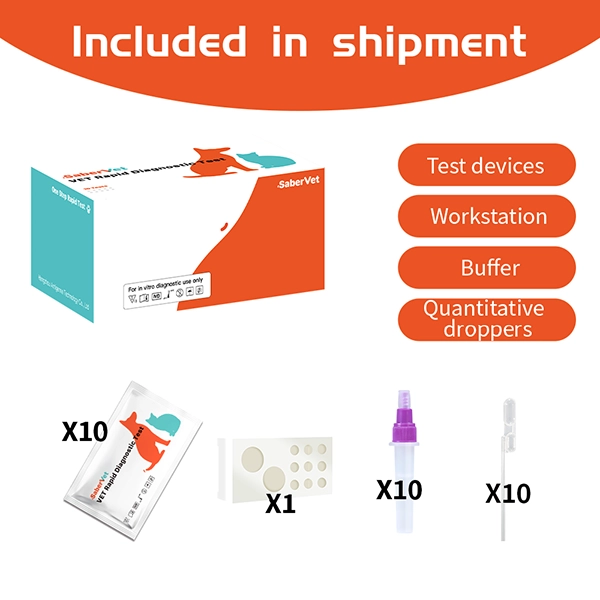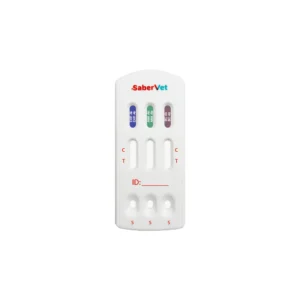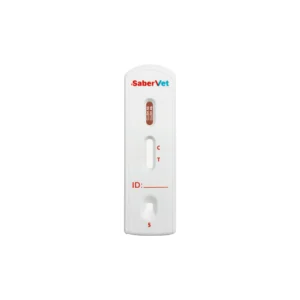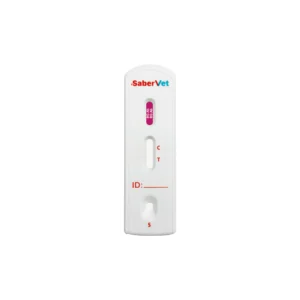説明
Canine heartworm disease, canine ehrlichiosis, canine leishmaniasis and canine Anaplasma disease are common blood-related infections in dogs. Despite the different pathogens, many commonalities remain.
類似点
感染経路:
They are all transmitted through vectors: canine heartworm disease through mosquitoes, canine ehrlichiosis and canine Anaplasma disease through ticks, and canine leishmaniasis through whiteflies (sandflies).
Symptoms:
They may all cause systemic symptoms such as fever, lethargy, and weight loss.
All may cause anaemia and enlarged lymph nodes.
地理的分布:
Globally distributed, especially more common in areas where vectors are active.
Differences
病原体:
Canine Heartworm Disease: caused by Canine Heartworm.
Canine Ehrlichiosis: caused by Ehrlichia spp.
Canine Leishmaniasis: caused by Leishmania protozoa.
Canine Anaplasma disease: caused by Anaplasma spp.
Specific symptoms:
Canine heartworm disease: coughing, dyspnoea, reduced exercise tolerance, heart failure, ascites.
Canine Ehrlichiosis: nosebleeds, bleeding tendencies, arthralgia and eye problems (e.g. uveitis).
Canine Leishmaniasis: skin ulcers, alopecia, thickening of the skin, weight loss, nasal haemorrhage and renal failure.
Canine Anaplasma disease: acute anaemia, jaundice and splenomegaly.
Canine Tests
Canine heartworm disease:
Antigen test: detection of canine heartworm antigen in the blood is the most commonly used screening method.
Microfilariae detection: Microfilariae (larvae) can be directly observed on blood smears.
Imaging tests: X-rays and echocardiograms are used to assess damage to the heart and lungs.
PCR test: Used to detect the DNA of canine heartworms with high sensitivity and specificity.
Canine Ehrlichiosis:
Blood smear test: blood smears can be observed for Ehrlichia, blood biochemistry and complete blood counts show anaemia and thrombocytopenia.
PCR検査:高い感度と特異性でエールリヒアDNAを検出する。
Serological test: detects anti-Ehrlichia antibodies.
Canine Leishmaniasis:
Serological test: detects anti-Leishmania protozoa antibodies.
PCR test: detects Leishmania protozoa DNA with high sensitivity and specificity.
Tissue biopsy and smear: microscopic examination of samples obtained from the skin, lymph nodes or bone marrow to observe Leishmania protozoa.
Canine Anaplasma disease:
Blood smear: direct observation of Anaplasma.
PCR test: detects Anaplasma DNA with high sensitivity and specificity.
Serological tests: detects anti-Anaplasma antibodies.
Blood biochemistry tests: to assess anaemia and bilirubin levels.
Canine Heartworm Antigen/Ehrlichia/Leishmania/Anaplasma Antibody Combo Rapid Test
Antigenne has developed the Canine Heartworm Antigen/Ehrlichia/Leishmania/Anaplasma Antibody Combo Rapid Test to help users more accurately diagnose whether a dog is infected with these diseases and to develop appropriate treatments and preventative measures to protect the health of dogs. The Rapid Test can help users to more accurately diagnose whether a dog is infected with these diseases and to develop appropriate treatment and control measures to protect the health of dogs.








